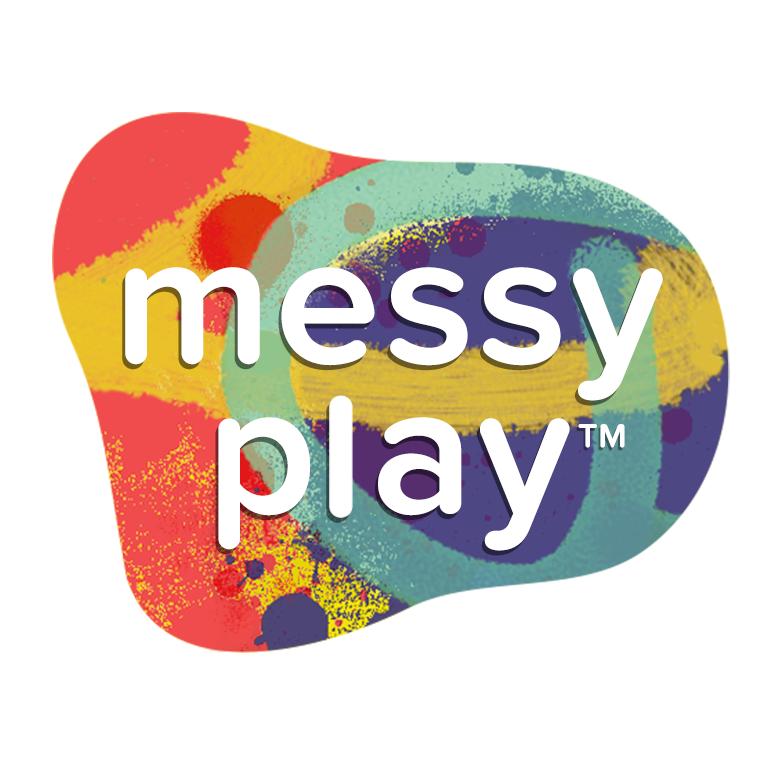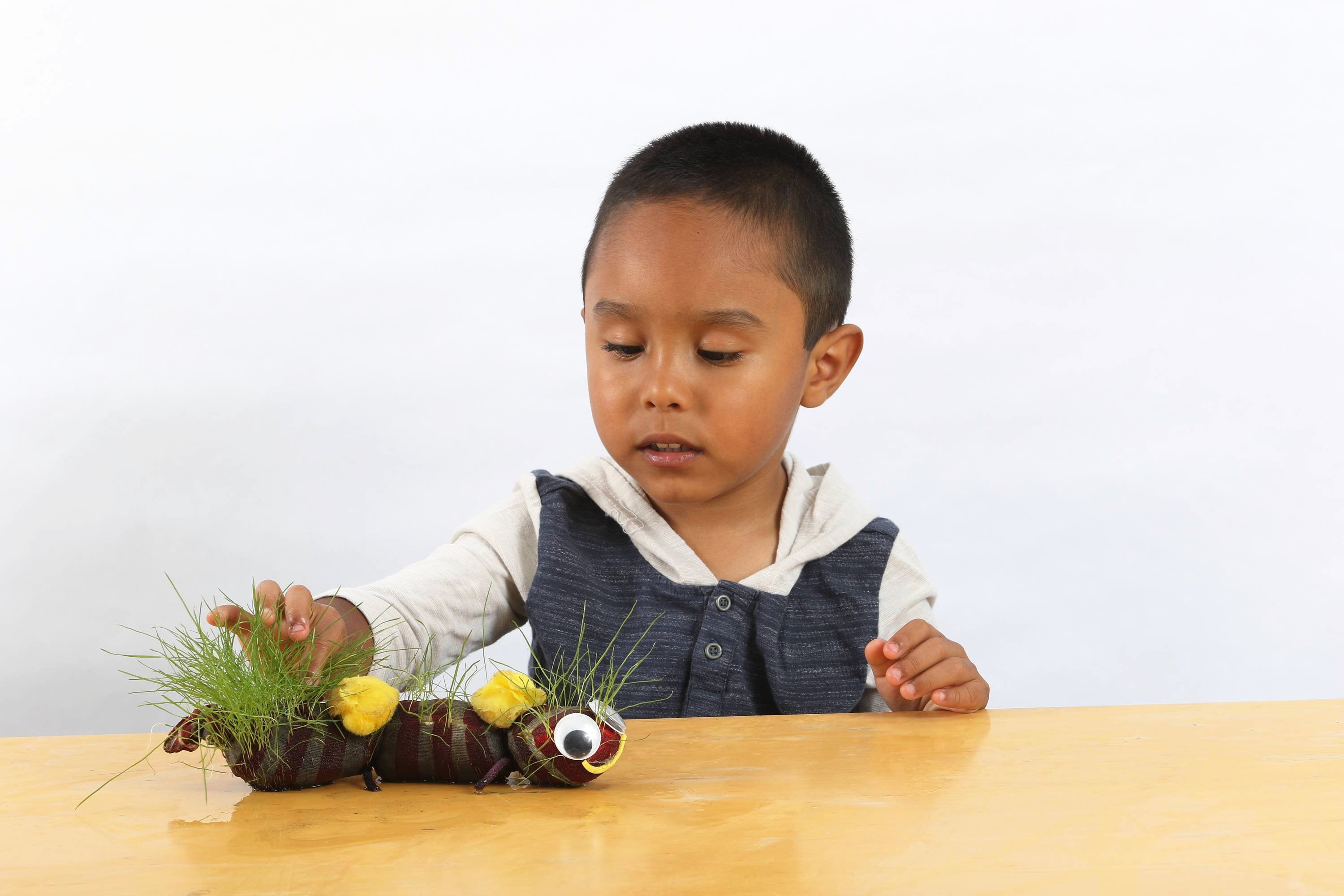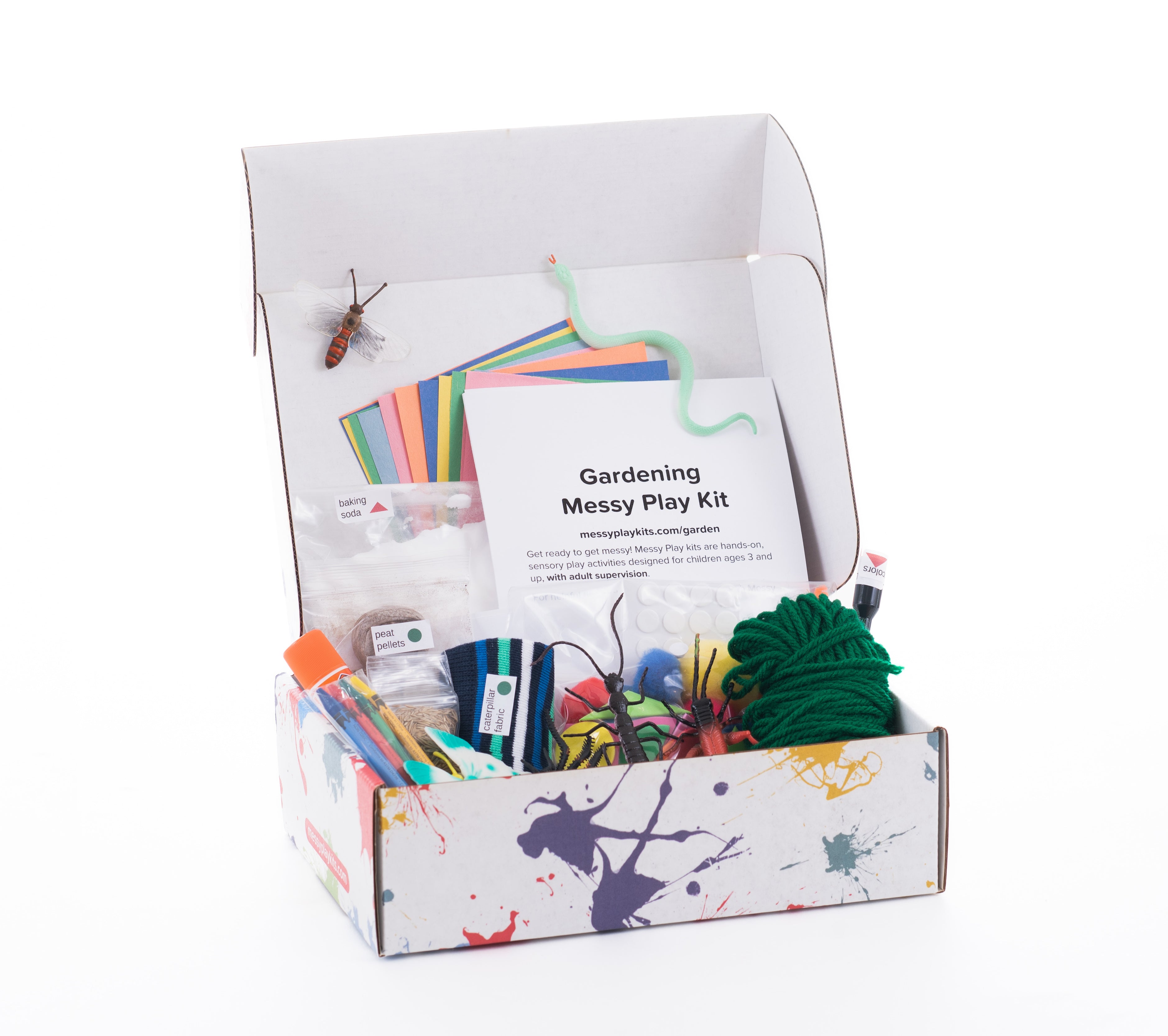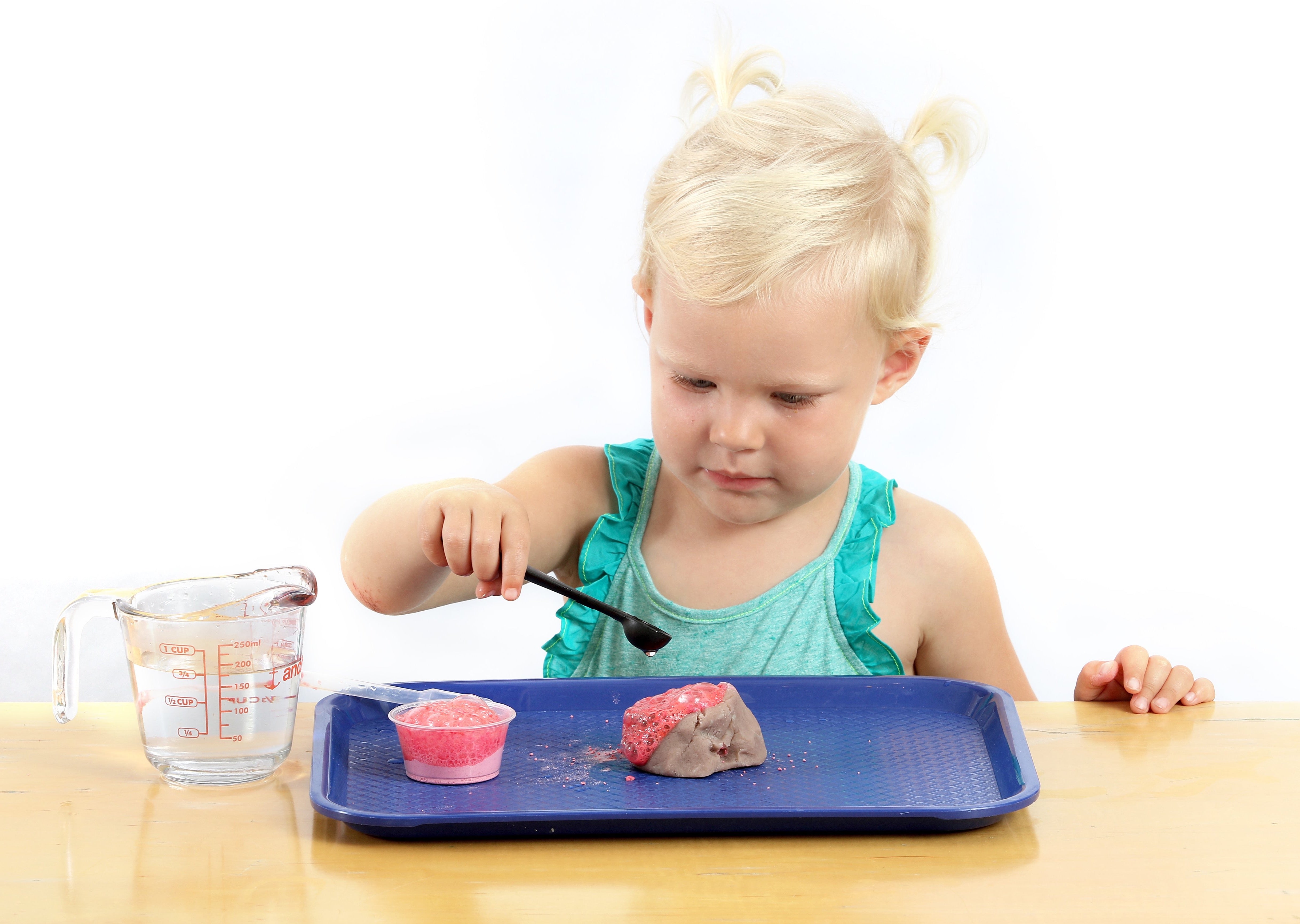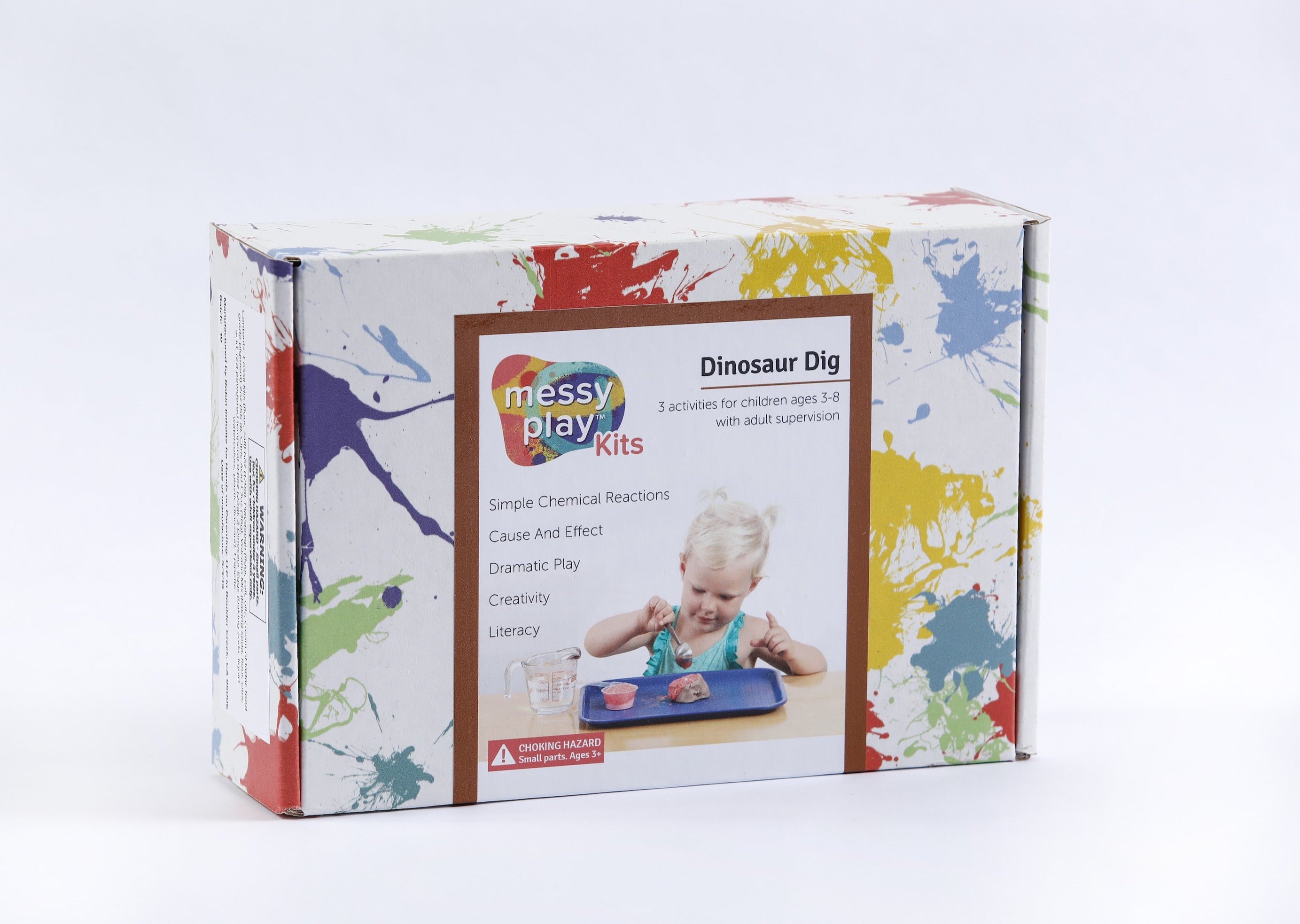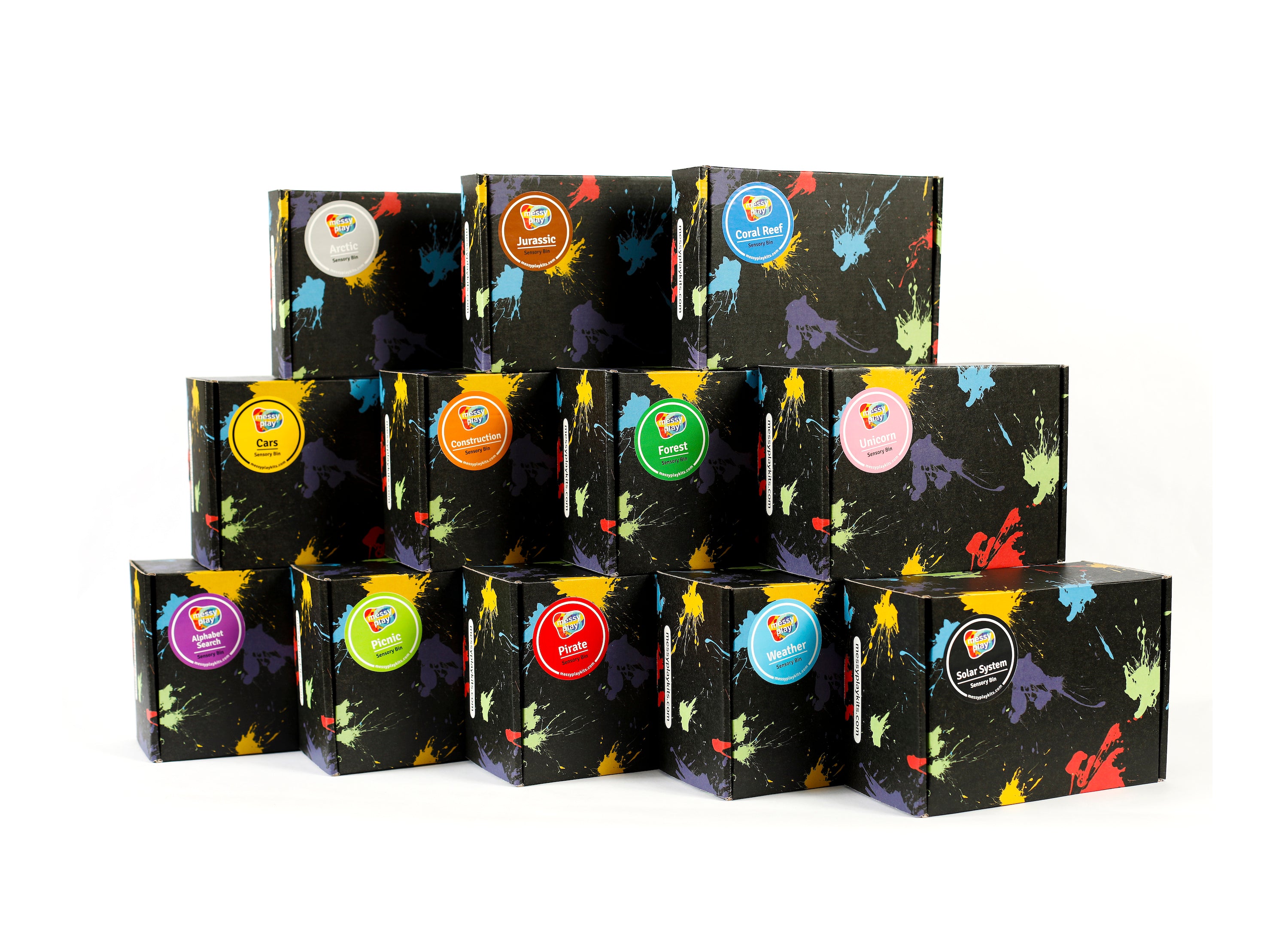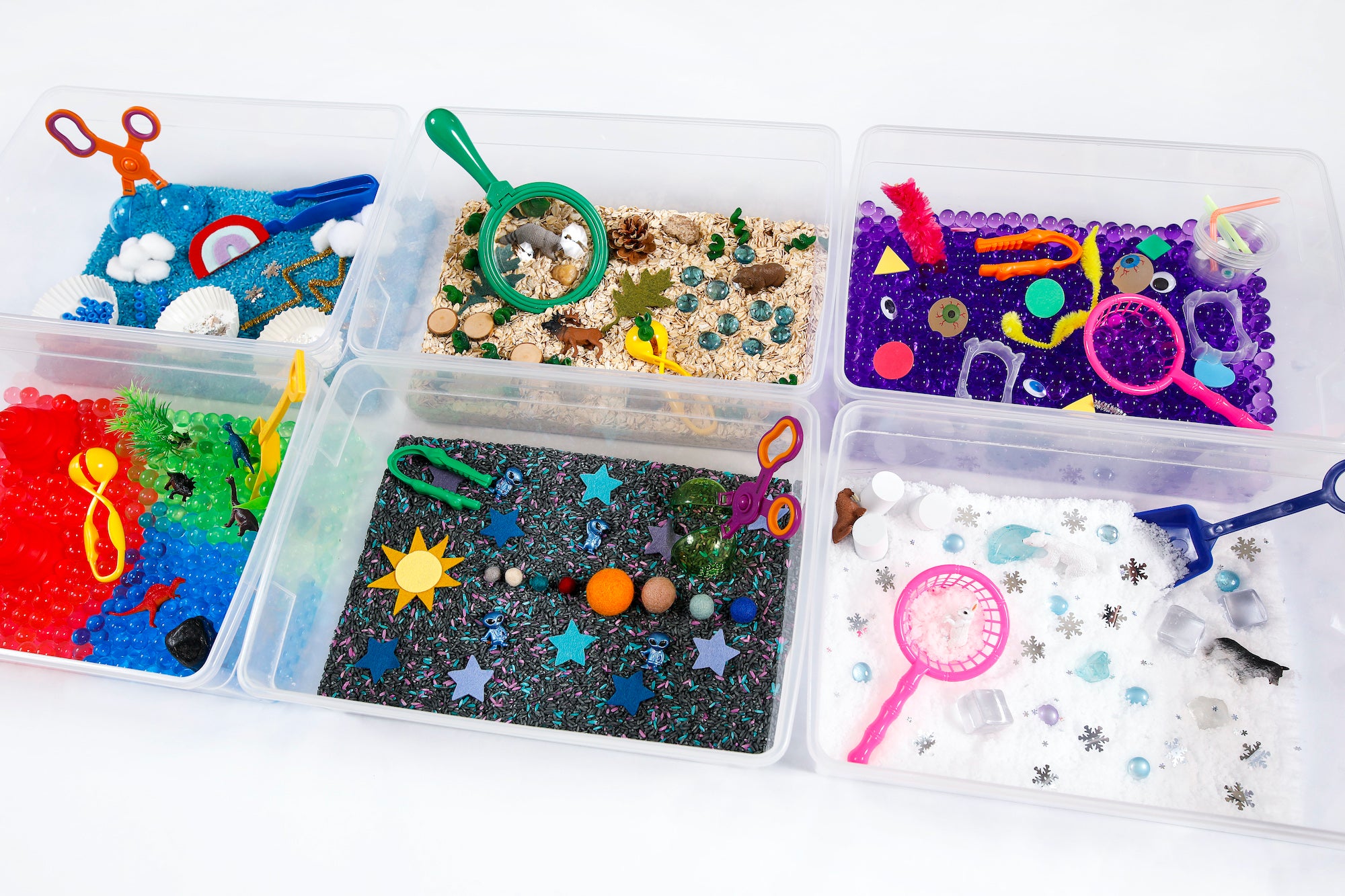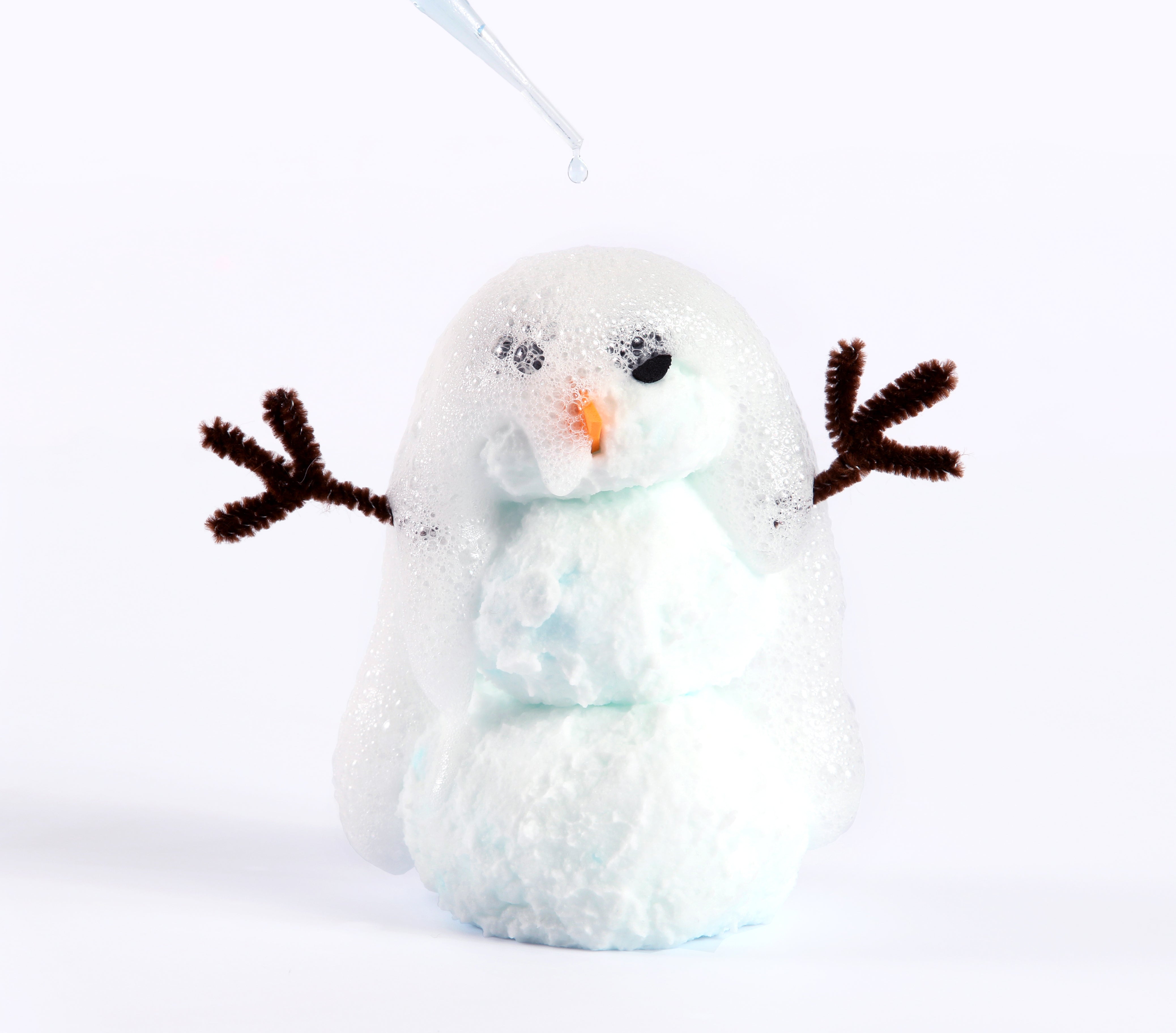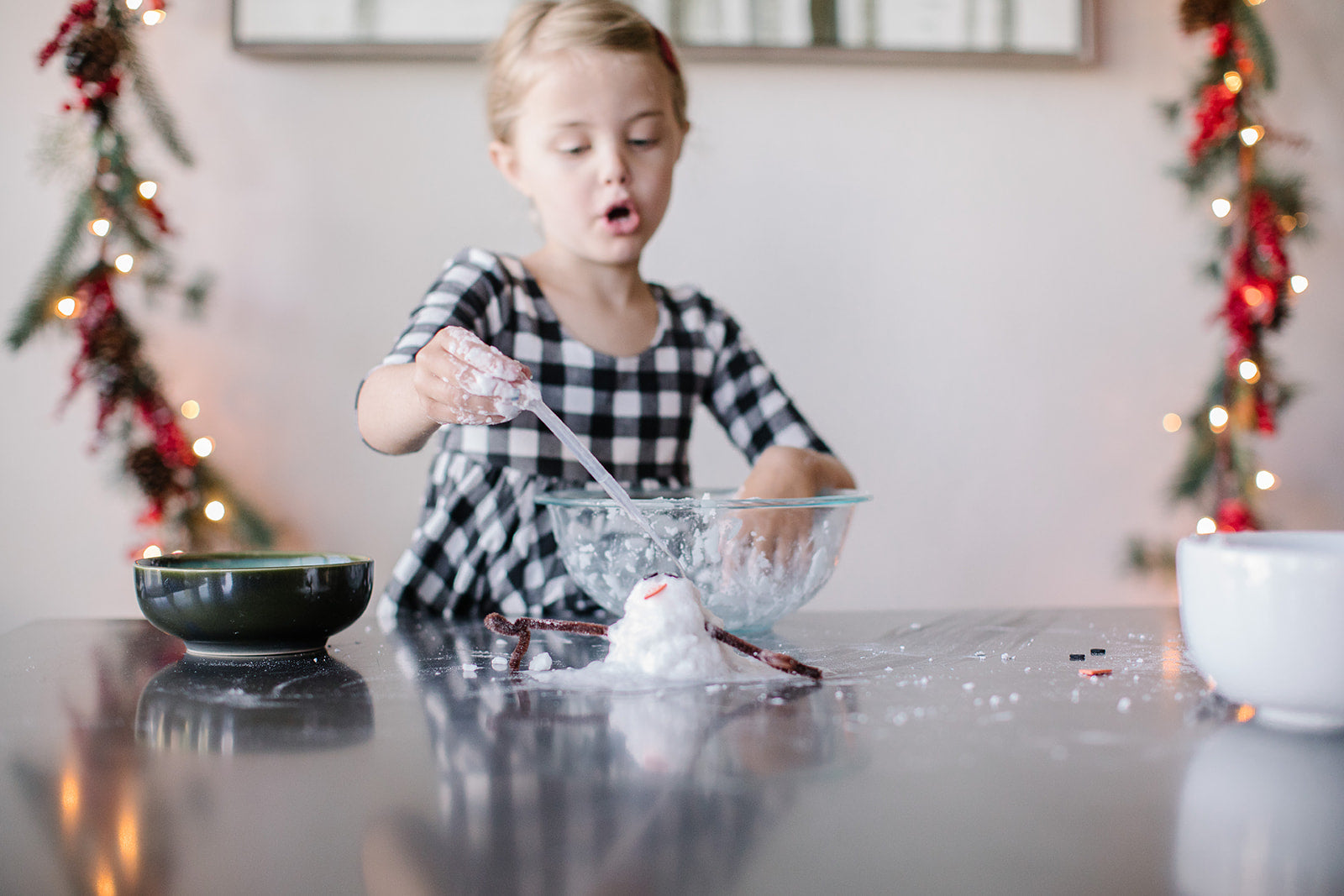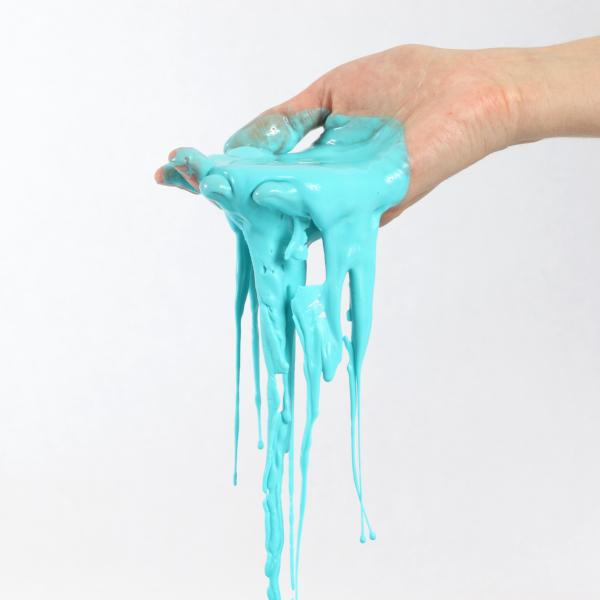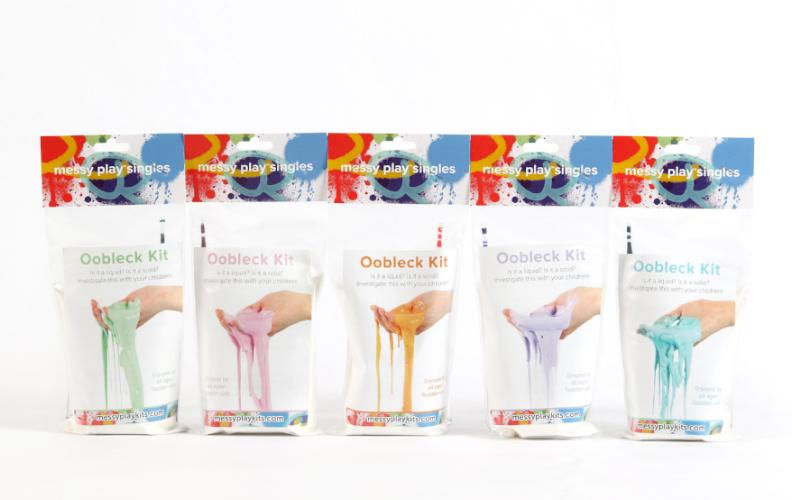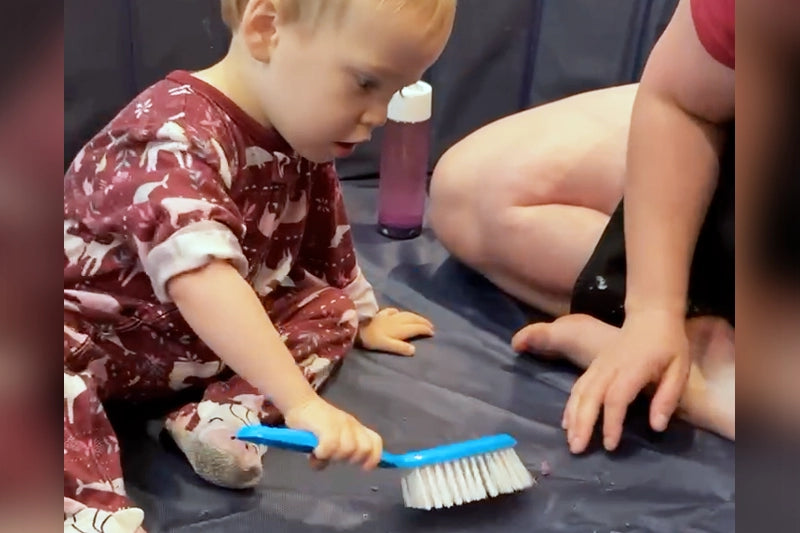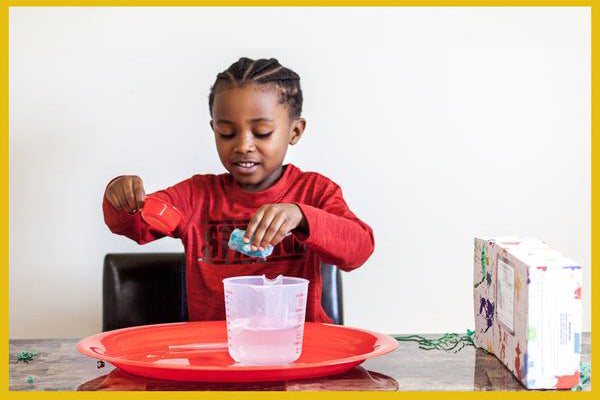Messy Play Teaches Preschool Science Concepts

Do you just love science and can’t wait to get your kiddo involved? All parents love to project their interests on their kids and Messy Play Kits wants to help you accomplish this particular interest (mostly because we’re also obsessed with science)! The good news is– you can easily engage your young kiddos in activities that teach preschool science concepts!
One benefit of sensory play is that it supports your child's scientific curiosity and development. Messy Play Kits offers lots of product options that encourage science for preschoolers! Here are four ways messy play promotes your child's foundation in science.
How to Teach Science for Preschoolers
Understanding Physical Properties
A physical property is a property that can be observed using the five senses. How big is an object or how heavy? What is the texture like? What color is it? These physical properties might sound simple, but they are the basis for scientific observation. You can ask questions like these to help stimulate the connection between language, neurological processing, and physical feeling in your child. These conversations help your kiddo to understand and describe what they're seeing, hearing, and feeling through their senses.
Chemistry
Science for preschoolers can be so fun! To a child, chemical reactions look like magic! You can encourage that fascination while also building understanding of the underlying principles by describing what your little is doing and the effects:
"You poured the vinegar into the volcano, and look! It's fizzing!".
For a small child, observing and describing the reactions is enough. As your child grows older, you can talk about the names of the reactions you're creating, and what causes them.
“Look! The sun is changing the color of your slime because it’s photochromic-- that means light causes the color to change!”
You can help provide language about what is taking place, then facilitate understanding about how and why the reaction is taking place. This will initiate follow up questions that can turn this play activity into a full on science lesson! And if you’re worried about knowing the language, don’t be: Messy Play Kits instructions explain the science and terminology behind each of the chemical reactions in our kits!
Predictions and Observations
Hypotheses and observations are at the core of the scientific method! Messy Play Kits uses this method to teach preschool science concepts. Try asking your child about what they observe and what they expect to happen while playing.
Do you think the ice will get bigger or smaller as the water freezes? How would you describe the texture of the oobleck? Consider writing down your child's ideas and observations during an activity, especially if you are going to do it multiple times. Children feel very validated when adults write down their words, and it's a great opportunity to model writing and literacy skills!
Conservation of Volume
Measuring cups hold different volumes of materials, and as adults, we know this. Children don’t yet, so letting them explore with measuring cups and various sized containers are great ways for them to concretely learn size proportions like 1 cup is larger than ⅓ cup. Volume is the space that a material takes up within a container, while conservation of volume is the idea that a certain amount of a material will take up the same volume regardless of the container size. For example, ⅓ of a cup of water will fill a ⅓ cup measuring cup, but will be fill a smaller amount in a large 1 quart container. Even so, it’s still the same volume. Letting your child explore a sensory bin of water with a variety of containers and measuring cups is a great way to help them explore learn these fun lessons!
. . .
Lots of Messy Play Kit products initiate exciting chemical reactions. There’s some element of this in almost every Messy Play Kit, including the Dinosaur Dig Messy Play Kit. As for predicting and observing, the Gardening Messy Play Kit is perfect for this, as you grow a real plant that you can watch change over weeks! (That one is only available as part of the monthly subscription).
During the fall/winter holiday season, we have lots of smaller stocking stuffer activities that involve color changing slime (based on temperature or sunlight), non-Newtonian fluids, and even chemical reactions for fizzing snowmen! So check the website for these awesome Single Activities then!
. . .
Science for preschoolers is easily accessible and so fun through Messy Play Kits activities. So, let’s get started in teaching your kiddo your favorite preschool science concepts through play!


The best way to fully utilize the science skills taught with messy play is to sign up for a monthly subscription and receive a new activity box each month!
